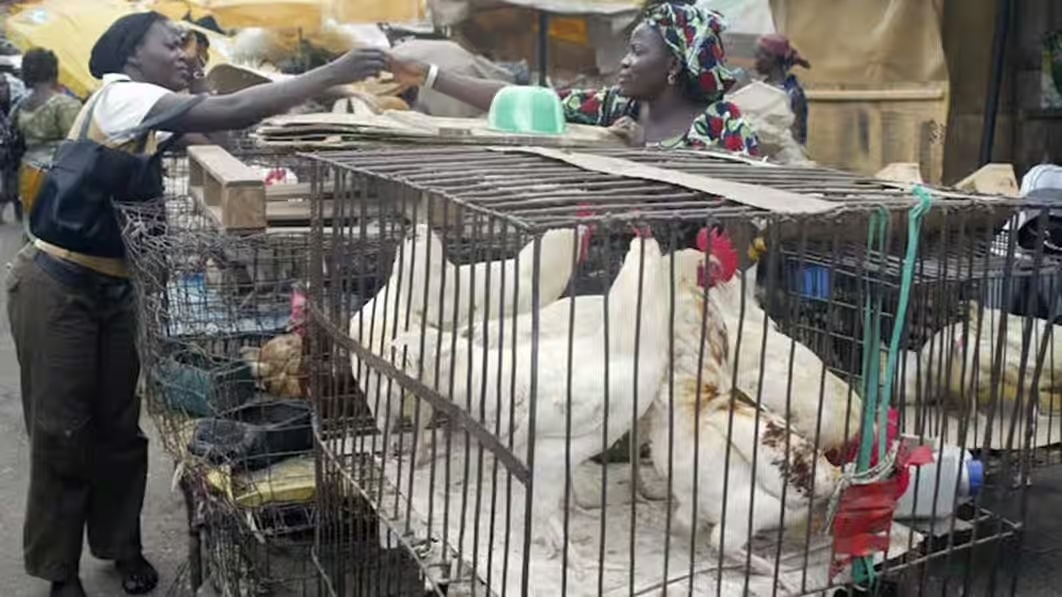says 14 out of 17 concessioned silos are empty
as Emir Sanusi says cheap food is hurting farmers
Nigeria is losing over $10 billion annually due to poor storage facilities, which have resulted in high post-harvest losses.
The Minister of Agriculture and Food Security, Senator Abubakar Kyari, disclosed this in Abuja during a session on food systems, during which a study on investing in innovative solutions for food systems in challenging contexts was unveiled at the ongoing Nigerian Economic Summit (NES31).
The study, Investing in Innovative Solutions for Food Systems in Challenging Contexts, is a supply chain mapping and analysis that highlights concrete opportunities to strengthen food systems across Nigeria, with special focus on tapping into opportunities in northern Nigeria.
The session was hosted by the Federal Government in collaboration with the World Food Programme (WFP), the African Development Bank (AfDB), and the International Food Policy Research Institute (IFPRI).
The Minister noted that only three out of the 17 silos concessioned by the Infrastructure Concession Regulatory Commission (ICRC) are functional, while the remaining 14 are abandoned.
Senator Kyari said that farmers are using traditional storage systems to preserve their crops because the available silos are in urban centres.
“These silos are empty because they are far away from the centres of production,” he said, adding, “We are working to have at least 80 per cent of our silos located in those small farming communities.
If we have modern silos in these communities, it will increase their income.”
He invited the UN Humanitarian Commission, as well as the private sector, to invest in storage facilities in local communities, which he said would serve them better than simply giving them money.
He also informed that the ministry is currently having discussions with ICRC with a view to reversing the concessions so that those who are ready to operate them can take over.
Also lending his voice, the Emir of Kano, Sanusi Lamido Sanusi, called on the government to make the importation of food as a palliative a short-term policy.
He said that rather than opening up the market to food importation, the government should give the people money to buy food.
He said, “In bringing down the price of food, we also wiped out the profit of producers. People who borrowed money from banks and spent a lot of money on inputs suddenly discovered that they could not compete. This has rendered farmers bankrupt, mills have been shut down, and banks have non-performing loans.”
He said the major problem of the food system in Nigeria is lack of policy continuity. According to him, whenever a new government comes in, everybody starts on a clean slate.
Sanusi said the civil service, which is supposed to be the institutional memory, has either by design or default failed to do that.
He advised that the government should concentrate on coming up with policies that will encourage the private sector to invest in agriculture, adding that fixing the agric value chain and attracting investment into it is the best solution for dealing with poverty in northern Nigeria.
Earlier in his presentation, the United Nations Resident and Humanitarian Coordinator in Nigeria, Mr. Mohammed Malick Fall, said the joint study by the World Food Programme (WFP), the African Development Bank (AfDB), and the International Food Policy Research Institute (IFPRI) is a reminder that food systems in fragile contexts are not broken, but are unfinished.
“They need investment, they need trust, and they need partnership,” he said.
“We are here to build a Nigeria where every farmer thrives, every harvest is secure, and every home has children and families properly nourished.”
He noted that investing in the resilience of today prevents the crisis of tomorrow.
On his part, Country Director,
International Food Policy Research Institute, Oliver Kiptoo Kirui, said, “Our finding is that farmers are facing high input costs and poor infrastructure, and sometimes face 30 to 50 per cent post-harvest losses.
“The transport bottleneck and informal taxation further raise the costs and reduce the farmers’ profit significantly. These undermine investment and shoot up food prices.”
He recommends that the government leverage humanitarian food assistance to strengthen food systems and invest in critical infrastructure like storage and transport.
The Governor of Katsina State, Dikko Umar Radda, who also spoke during the session, said farmers are selling at a loss.
The governor said farmers are spending so much to produce but cannot recover their costs because of food importation.
He appealed to the federal government to stop food imports, as it is denying local farmers a reward for their efforts.






